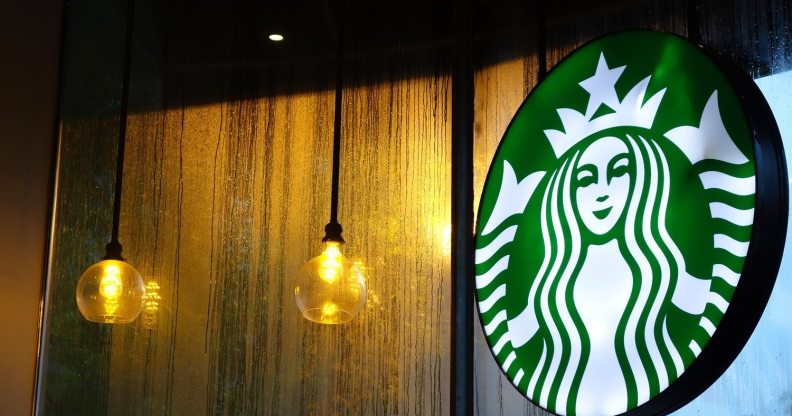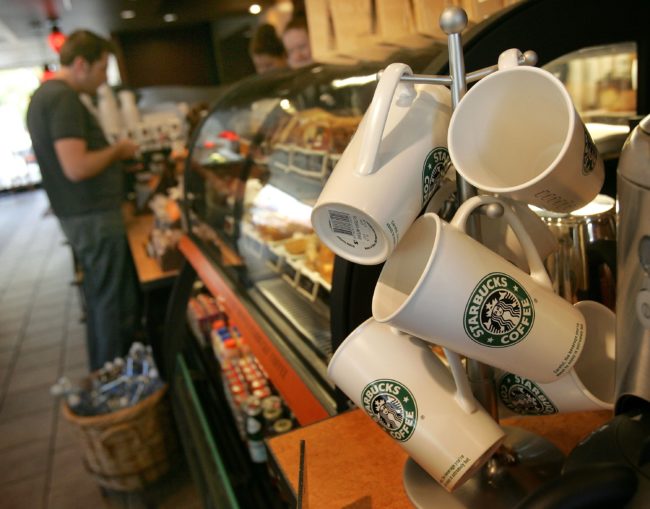Court reinstates transgender man’s discrimination suit against Starbucks

The Minnesota Court of Appeals ruled Tuesday that a man should be allowed to file a lawsuit against Starbucks, for transphobic discrimination.
The suit was thrown out earlier this year by Hennepin County District Court, who said that Paul Bray, aged 43, did not have enough evidence to show that he was treated differently because he is transgender.
However this week the panel of the appeals court reversed the decision, and reinstated the suit.
There is a genuine issue of material fact regarding whether Starbucks discriminated against Bray because he was transgender,” Judge Michelle Larkin wrote.
Bray is filing complaints against Starbucks coffee shops in Eden Prairie and Edina, Minnesota, saying their treatment of him changed after he told them he was transgender in March 2013, after changing his name.
Bray shared the information with an employee, Adam Voth, so as to explain any confusion with the names on his credit card, and Voth promised to keep it confidential.
However afterwards, another Eden Prairie Starbucks employee, Sophia Peka, who Bray had formed a friendship with over a year of visiting the coffee shop, began to treat him differently.

Related: Starbucks’ 2017 festive campaign featured a lesbian couple
Bray says that in one encounter in July 2013, Peka appeared to be very angry when taking his order. Over following days, he said she would serve other customers, but walk away from him.
According to the court ruling, when Bray complained to a shift manager, he was told Peka was uncomfortable serving Bray because he was not “a real man.” Asked to clarify, the manager said it was because Bray was transgender.
After another incident in October, in which Peka pointed at Bray and told another employee “that’s him,” and the employee appeared disgusted while serving Bray his drink, Bray stopped going to Eden Prairie Starbucks.
Bray began to go to a different Starbucks, in Edina, and had friendly conversation with a staff member, Amanda Bretvold, there.
However when he recognised an Eden Prairie employee in Edina, Bray said they and Bretvold abruptly walked away as he ordered.
Then a female employee approached Bray and stared at him, then said to Bretvold through her headset, “I want to have sex with him.”
Bray told management, but they denied their employees had done anything wrong.

(Photo by Tim Boyle/Getty Images)
In July 2014, Bray sued Starbucks. He said that as a public place they had violated state laws against discrimination and harassment.
He told the courts that the discrimination caused “significant emotional distress, shame, humiliation and embarrassment.”
Last month a federal jury ruled in favour of a transgender professor, and awarded her with over $1.1 million, after her university denied her tenure and a promotion.
Starbucks’ attorneys argue that the incidents Bray cites were occasional compared to the significant periods of time that he received normal service, and deny that employees discriminated against him.
There is also debate as to whether Bray can sue over allegations from before July 2013, due to the expiration of the statute of limitations.
However, Judge Larkin says the record reasonably supports a conclusion that Starbucks treated Bray more adversely after he disclosed his transgender status, that he was treated rudely by employees and experienced longer wait times than normal.
“Starbucks has not articulated a legitimate, nondiscriminatory reason for its employees’ actions,” Larkin wrote.
“We are disappointed with the ruling from the Minnesota Court of Appeals and are evaluating our options,” Reggie Borges, Starbucks’ corporate media representative in Seattle, told the Star Tribune.
In November, the US State Department condemned discrimination against transgender people, words that many noted rang hollow as the Trump administration continues to dismantle trans equality protections.

